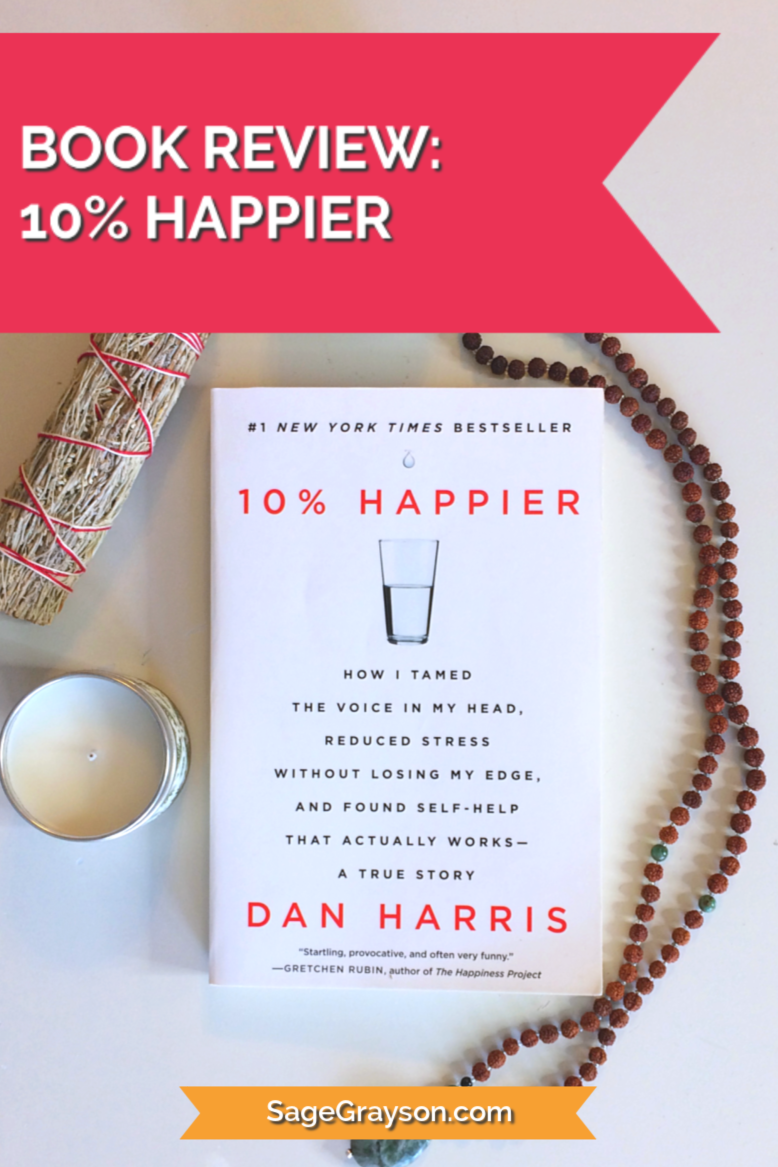In an increasingly frenetic world, the search for happiness often resembles a daunting quest, prompting many to embark on a journey of self-discovery and introspection. One such exploration is encapsulated within the pages of “10% Happier,” a book that converges insights from psychology, mindfulness, and journalism. Written by Dan Harris, a co-anchor of ABC’s Nightline, this book chronicles a transformative personal journey sparked by an unexpected panic attack on live television. It is not merely a self-help guide; instead, it is an authentic narrative revealing how the pursuit of happiness can (and should) be approached with a healthy dose of skepticism and practicality.
At the book’s core lies a profound observation: many individuals are perpetually chasing an ephemeral notion of happiness. Society inundates us with images of perpetual joy—vibrant sunsets, laughter-filled gatherings, and serene holidays, leading to an often misconstrued belief that happiness is a destination rather than a journey. Harris challenges this conventional wisdom, suggesting that the pursuit of happiness is, in actuality, a nuanced interplay of self-awareness, effort, and acceptance. This assertion prompts readers to delve deeper into their motivations and underscores a fascinating enigma: why are so many enthralled by the mere idea of being happy?
The author’s introspection begins with his harrowing on-air panic attack, an experience that acts as a catalyst for change—a wake-up call, if you will. This moment of vulnerability serves as a poignant reminder that even those who appear successful on the outside may grapple with inner demons. Through candid storytelling, Harris unveils the chaotic backdrop of his life, characterized by ambition and excess, juxtaposed against the stark reality of emotional distress. This duality invites readers to reflect on their own lives, prompting an essential question: how often do we ignore our mental health in pursuit of societal success?
As he navigates through his experiences, Harris introduces readers to the transformative power of mindfulness meditation. One might initially scoff at the notion of sitting in stillness to achieve a state of zen, arguing instead for active pursuits of happiness. However, Harris articulates a compelling case for why mindfulness is more than just a trend; it is a deliberate practice that cultivates an awareness that can yield profound alterations in one’s perspective. His journey into meditation is punctuated with skepticism, illuminating the inherent challenges one faces in adopting such practices, especially in a culture that venerates constant activity. This realistic portrayal demystifies the process and serves as an invitation to explore the depths of meditation’s efficacy in daily life.
Harris’s anecdotes offer an analytical glimpse into how meditation aids him in reconciling his overactive mind—a battleground of doubts and fears. The brevity of life’s moments is beautifully captured through his reflections, as he grapples with the understanding that happiness does not lie in the negation of hardships but in how one chooses to respond to them. The concept of ‘10% Happier’ becomes a delightful paradox; it suggests that a modest enhancement in our emotional state can yield monumental shifts in our overall contentment and well-being. This notion challenges readers to reframe their expectations and cultivate a more grounded perspective—one that emphasizes small gains rather than unattainable perfection.
The journey through “10% Happier” is not a solitary endeavor; it invites the reader into a community. Harris enriches his narrative by including insights from various experts in the fields of meditation and psychology, creating a mosaic of wisdom that amplifies his personal experiences. This eclectic array of voices serves to underscore that the path to happiness is neither linear nor universal; it is intensely personal and often marked by trial and error. The engagement with diverse viewpoints stimulates a broader discourse on mental health, advocating for a collective understanding that traverses beyond individual experience.
Critically engaging with modern society’s infatuation with instant gratification, Harris poignantly argues against the detrimental impact of social media and materialism on our happiness. He examines how the incessant comparison to curated lives can engender feelings of inadequacy, propelling individuals further away from genuine fulfillment. This scrutiny of external influences resonates with many, evoking a collective sense of unease. It seems that in our quest for happiness, we often overlook the subtle art of appreciation—of the present moment and our authentic selves.
Moreover, “10% Happier” acts as a clarion call, urging readers to embrace discomfort and uncertainty as inherent features of the human experience. Life, after all, is replete with contradictions and complexities. Approaching happiness from a lens of acceptance rather than avoidance empowers individuals to confront their fears, thereby facilitating growth and resilience. Harris’s candid honesty fosters a dialogue around vulnerability, steering away from the notion that one must appear ‘perfect’ to cultivate a fulfilling life. It’s a gentle reminder that every stumble, every challenge faced, paves the way for richer insights and a deeper understanding of oneself.
In conclusion, “10% Happier” serves as both a personal memoir and a philosophical exploration of happiness. It eschews simplistic formulas in favor of a nuanced narrative that celebrates the intricacies of life. As readers traverse this introspective journey, they are beckoned to contemplate not just the external trappings of happiness but the internal landscapes of their minds. With compelling storytelling and an earnest voice, Dan Harris underscores an essential truth: the journey to becoming ‘10% happier’ may just involve embracing life’s chaos while cultivating mindfulness amidst it all. This book is an invitation to embark on a transformative journey, ultimately revealing that happiness is not merely about achieving a state of contentment but the cultivation of a meaningful life.
